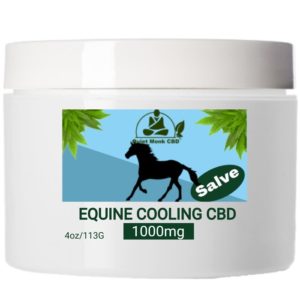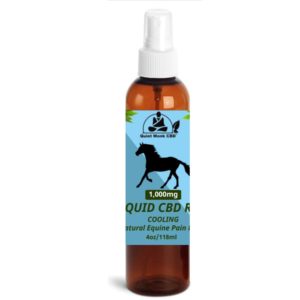
Introduction
In recent years, there has been a growing interest in using CBD as a natural remedy for horses with arthritis pain. Managing arthritis in horses can be challenging, and traditional medications may not always provide satisfactory results. As a result, horse owners and veterinarians are exploring alternative treatments, such as CBD, to alleviate arthritis symptoms and improve the overall well-being of affected horses.
CBD, or cannabidiol, is a compound derived from the hemp plant. It is known for its potential therapeutic properties, including pain relief and anti-inflammatory effects. CBD is non-psychoactive, meaning it does not produce the “high” associated with marijuana. This makes it a safe option for treating horses with arthritis.
Arthritis is a common condition that affects horses of all ages and breeds. It is characterized by inflammation in the joints, leading to pain, stiffness, and reduced mobility. The main types of arthritis in horses include osteoarthritis, which is caused by wear and tear on the joints, and inflammatory arthritis, which is the result of an immune system dysfunction. Arthritis can significantly impact a horse’s quality of life and performance, making it essential to explore effective treatment options.
Benefits of CBD for Horses with Arthritis
CBD may offer several benefits for horses with arthritis. One of the primary benefits is its ability to alleviate pain and inflammation associated with the condition. Arthritis causes joint inflammation, resulting in discomfort and reduced mobility for horses. CBD’s anti-inflammatory properties can help reduce this inflammation and provide relief from pain.
In addition to pain relief, CBD has the potential to promote joint health and improve mobility in horses with arthritis. It may help protect and repair damaged joint tissues, allowing horses to move more comfortably. Some horse owners and veterinarians have reported positive results in reducing arthritis symptoms with the use of CBD.
Furthermore, CBD offers a natural alternative to traditional medications for managing horse arthritis. Some horses may experience adverse side effects from pharmaceutical drugs, making CBD an appealing option. Research suggests that CBD’s anti-inflammatory properties can benefit horses with arthritis without the potential risks associated with certain medications.
CBD’s potential benefits for horses with arthritis are supported by scientific research. A study published in the journal Frontiers in Veterinary Science found that CBD reduced pain and improved mobility in dogs with osteoarthritis. While more research is needed specifically on horses, these findings suggest that CBD could have similar effects in equines.
How CBD Works for Pain Relief
CBD interacts with the endocannabinoid system (ECS) in horses, which plays a crucial role in regulating various physiological processes, including pain perception. The ECS consists of cannabinoid receptors, known as CB1 and CB2. When CBD is introduced into the body, it interacts with these receptors, modulating pain signals and reducing pain perception in horses.
The activation of CB1 receptors by CBD can help alleviate pain by suppressing pain signals in the central nervous system. CB2 receptors, on the other hand, are primarily found in immune cells and play a role in reducing inflammation. CBD’s interaction with CB2 receptors can contribute to pain relief in horses with arthritis by reducing the inflammation in their joints.
Additionally, CBD may promote relaxation and reduce stress in horses. Stress and anxiety can worsen pain perception, so CBD’s ability to induce relaxation can indirectly alleviate pain in horses with arthritis.
It is important to note that while CBD has shown promise in reducing pain and inflammation, it is not a cure for arthritis. It should be used as part of a comprehensive treatment plan, which may include other medications, therapies, and lifestyle modifications.
Different Forms of CBD for Horses
There are various forms of CBD available for horses with arthritis, allowing horse owners to choose the most suitable option for their equine companions. Some of the commonly used forms include:
- CBD oil: CBD oil is a popular choice for horses as it can be easily administered orally or mixed with feed. It is absorbed through the digestive system and enters the bloodstream, providing systemic relief. The dosage of CBD oil can be adjusted based on the horse’s weight and specific needs.
- CBD cream: CBD cream is applied topically to the affected areas for localized relief and absorption. It can be directly massaged into the joints, targeting the specific areas of discomfort. Topical application of CBD allows for targeted relief and may be beneficial for horses with localized joint pain.
- CBD tinctures: CBD tinctures are administered orally or added to water for horses who may be sensitive to taste. Tinctures usually come with a dropper, allowing for precise dosage control. This form of CBD is convenient for horse owners who prefer an oral administration method.
- CBD pellets: CBD pellets are a convenient and easy-to-administer option. They are often mixed with other horse supplements and can be fed to the horse directly or added to their feed. CBD pellets provide a consistent dosage and can be a suitable choice for horses that require long-term CBD supplementation.
- CBD treats: CBD treats are a palatable option for horses that may be resistant to other forms of CBD administration. They can be given as a snack or reward, making it easier for horse owners to administer CBD to their horses. CBD treats are available in various flavors and can be a useful tool for compliance in horses.
The choice of CBD form depends on factors such as the horse’s preferences, ease of administration, and the desired mode of absorption. It is important to select a reputable CBD product specifically formulated for horses to ensure safety and quality.
Dosage and Administration of CBD for Horses
The appropriate dosage of CBD for horses with arthritis can vary based on factors such as the horse’s weight, severity of arthritis, and individual response. It is essential to start with a low dosage and gradually increase it until the desired effects are achieved. Regular monitoring of the horse’s response and adjusting the dosage as needed is recommended.
To determine the optimal dosage, it is crucial to consult with a veterinarian experienced in CBD use for horses. They can provide guidance based on the horse’s specific needs and help create a personalized treatment plan. CBD can be administered orally, applied topically to the affected areas, or mixed with food or water for ease of administration.
It is important to note that CBD is not regulated by the U.S. Food and Drug Administration (FDA) for use in animals. However, there are guidelines available from various sources, including veterinarians and CBD manufacturers. These guidelines can serve as a starting point for determining the appropriate CBD dosage for horses with arthritis.
It is important to ensure that the CBD product used for horses is specifically formulated for equine use. Using CBD products meant for humans or other animals may not provide the desired effects and could potentially be harmful. Horse owners should also be aware of the concentration of CBD in the product and calculate the dosage accordingly.
Potential Side Effects and Precautions
While CBD is generally considered safe for horses, some potential side effects may occur. These can include drowsiness, dry mouth, or gastrointestinal upset. It is crucial to start with a low dosage and monitor the horse for any adverse reactions. If any negative symptoms arise, it is recommended to consult with a veterinarian.
CBD may also interact with certain medications, so it is essential to consult with a veterinarian before starting CBD treatment for a horse with arthritis. They can assess the horse’s current medication regimen and provide guidance on any potential interactions.
Additionally, it is important to ensure that the CBD product used for horses is specifically formulated for equine use. Using CBD products meant for humans or other animals may not provide the desired effects and could potentially be harmful.
In some cases, individual horses may not tolerate CBD well, so careful observation is necessary. If a horse shows any signs of discomfort or adverse reactions, it is recommended to discontinue CBD use and consult with a veterinarian.
It is worth noting that research on the long-term effects of CBD use in horses is limited. While CBD has shown promise in managing arthritis symptoms, further studies are needed to fully understand its safety and efficacy in equines. Horse owners should stay informed about the latest research and consult with a veterinarian for the most up-to-date information.
Natural Remedies for Horse Arthritis
In addition to CBD, there are other natural remedies that can help manage arthritis in horses. These include:
- Regular exercise: Controlled exercise can help maintain joint mobility and promote overall well-being in horses with arthritis. Exercise should be tailored to the horse’s individual needs and limitations. Low-impact activities such as walking, swimming, or gentle trail riding can be beneficial.
- Proper nutrition: Providing a balanced diet with joint-supporting supplements can benefit horses with arthritis. Supplements such as glucosamine and chondroitin sulfate may help improve joint health. Omega-3 fatty acids, found in sources like fish oil, can also have anti-inflammatory properties.
- Complementary therapies: Options such as acupuncture, massage, and chiropractic care may provide additional relief for horses with arthritis. These therapies can help reduce pain, improve circulation, and promote relaxation. It is important to consult with qualified professionals who have experience working with horses.
By combining CBD with these natural remedies and consulting with a veterinarian, horse owners can take a holistic approach to managing horse arthritis and improve the quality of life for their equine companions.
Arthritis is a complex condition, and each horse may respond differently to various treatments. It is important to work closely with a veterinarian to develop an individualized treatment plan for a horse with arthritis. Regular monitoring and adjustments may be necessary to ensure the best outcome for the horse. With comprehensive care and the appropriate use of CBD and other natural remedies, horse owners can provide their arthritic horses with the best possible chance for pain relief and improved mobility.
Conclusion
CBD shows promise as a natural remedy for managing arthritis pain in horses. Its potential benefits include pain relief, reduced inflammation, and improved joint health. However, it is crucial to consult with a veterinarian to determine the suitability and optimal usage of CBD for each individual horse. By considering a holistic approach and incorporating natural remedies, horse owners can help their arthritic horses lead more comfortable lives. The use of CBD, in conjunction with other treatments and therapies, may provide a multifaceted approach to managing arthritis in horses and improving their overall well-being.


